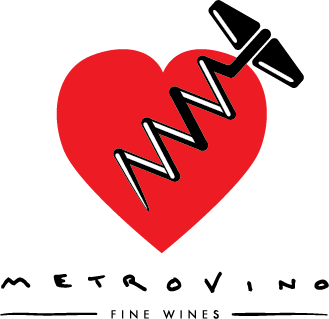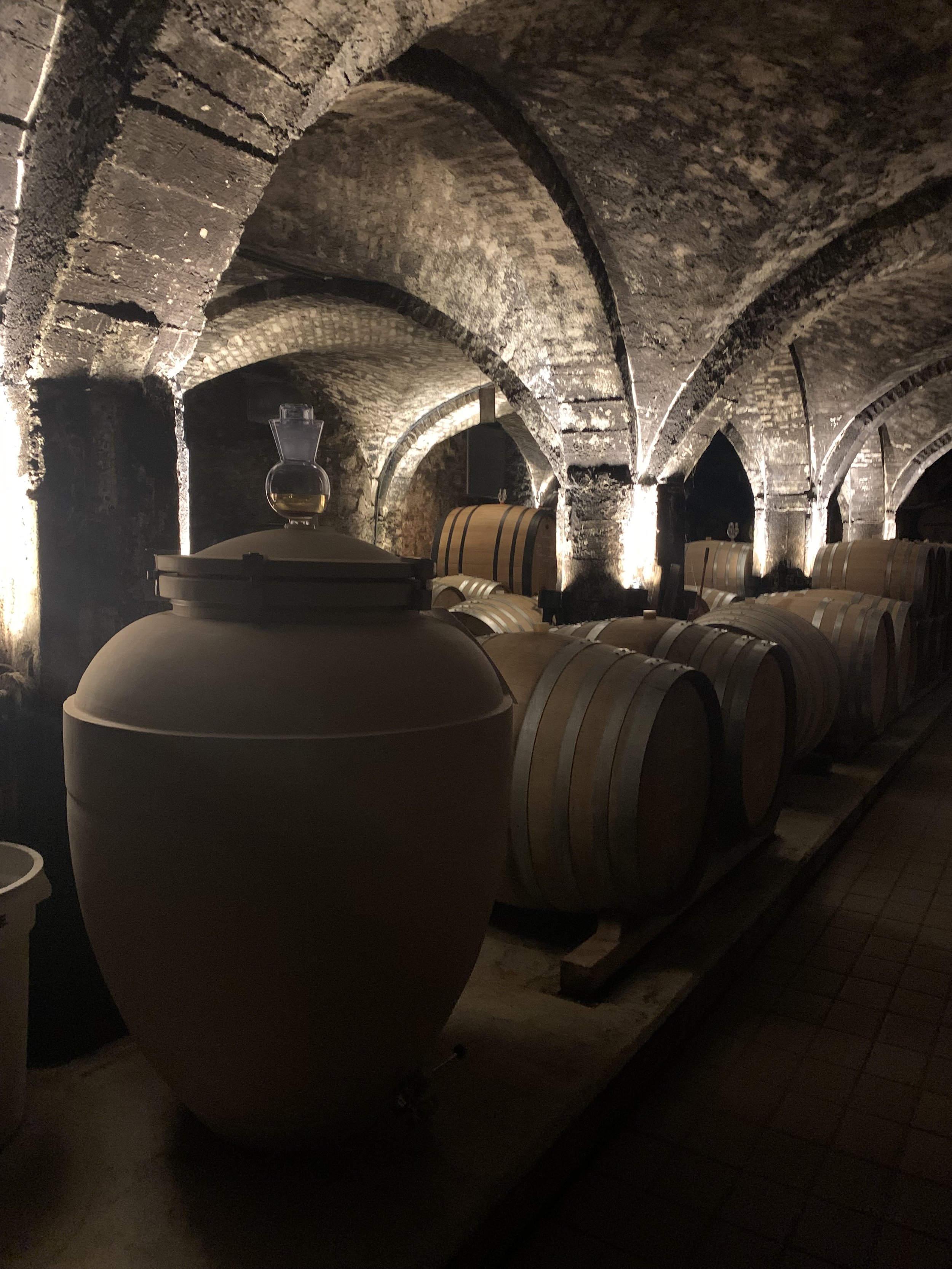Griesel & Compagnie - Bensheim
It’s taken almost three decades, but we at Metrovino couldn't be more excited to introduce Albertans to our first sparkling wine producer from Germany. This is the kinetic project of Griesel & Compagnie which, if we're not mistaken, is also the first grower from the tiny region of Hessische Bergstraße to be offered in the province. They call sparkling wine “sekt” in Germany, as I’ll proceed to do so henceforth.
More so than most fields of writing, winegrower profiles probably shouldn't be about the author, and yet I feel that the serendipitous way that Griesel entered my orbit is worth sharing. In September of 2021, I was in Toronto for a Riesling-themed event at which I was a rather diffident guest of honour. The presence of countless journalists, promotional bodies and even the German Consulate took me out of my comfort zone, and my nerves were completely racked. I was mercifully handed a glass of sparkling wine, and despite the pressures of the situation, the aromas and flavours stopped me in my tracks. What an unexpected time for unbridled beauty to present itself! I excused myself from my interlocutor in order to find out what I was drinking, and was told by the bartender that it was a Riesling-based sekt from a producer called “Griesel".
Three days later I was having dinner at Andreas “A.J.” Adam's home in the Mosel, Germany. I've known Andreas for many years, and in addition to having considerable respect for the wonderful wines that he makes, I also love drinking with him because he has a great palate. Upon my arrival, he opened a bottle of Brut Rosé with the name Griesel & Compagnie emblazoned on the label. Interesting coincidence, I thought, and this time I was relaxed enough to give the wine my full attention—and to get the lowdown on the producer from Andreas. I learned that there was justified hype surrounding the estate, that the wines were not easy to obtain, and given that the wine was both delicious and original, I understood why. And though I'm not a particularly mystic person, I'm also not quite stupid enough to ignore garish, neon-lit signposts on life's pathway. Griesel’s wines were recurring signposts.
The following April I returned to Germany with three colleagues, having scheduled a visit with Griesel & Compagnie. It was our first trip to the Hessische Bergstraße—the smallest of Germany's 13 official wine regions—and it was made very clear that the visit would be strictly academic as the winery's production had already been entirely allocated. We found our way to Grieselstraße (the street that lends its name to the winery) in Bensheim, excited to learn more about the region and the processes that spawn such fascinating wine. What we encountered was a dynamic and original winegrowing and sekt-making project run by impassioned, talented, curious and experimental young people. Like the wines themselves, it was quite unlike anything that we had ever encountered before.
Eastwards across the Rhein from the Rheinhessen, the Hessische Bergstraße (the “Mountain Road of Hessen”) is essentially a northern extension of Baden. Considering the vast area and multiplicity of terroirs encompassed by the latter region, it seems that the Hessische Bergstraße was unfairly excluded—although it's much more exciting as a regional underdog than it would be as yet another subdistrict of bloated Baden. True to the German stereotype, Griesel's organically-farmed vineyards rise imposingly from the perimeter of Bensheim, climbing the western slopes of the Odenwald mountain range which itself shelters the region from deleterious weather. The granitic subsoils are covered in loess and loam. Despite their immediate proximity to the city, these sites encompass a sense of idyllic, sylvan charm.
Few wine producer's stories are catalyzed by such trusting and visionary financial benefactors and such a talented young estate manager as Griesel & Compagnie's. In 2013, an industrialist couple from Bensheim purchased the former cellars of the Hessian State Domain, and commissioned the recently-graduated Niko Brandner to make world-class sparkling wine on an artisanal scale. Fruit had to be sourced from colleagues at first (mostly from the Pfalz, and to a small extent, Griesel's production is still augmented in this way), and experimentation was encouraged. Vineyards slowly accumulated and Brandner is now aided by a small team of equally driven young vintners. Everything is hand-harvested and spontaneously fermented in ancient, vaulted cellars—in wood of various sizes or steel, depending on the wine. The vins clairs enjoy extended time on fine lees prior to tirage, and some even spend time on their skins. The bottles then spend a minimum of 16 months en tirage, but cuvées in the “reserve” and “perpetual reserve” ranges exceed this exponentially. Bottling is almost invariably conducted without additions of sulphur dioxide, although sulphur is occasionally utilized during élevage. None of this is particularly extraordinary, except for the results.
But wait a minute—how did Griesel & Compagnie's wines find their way to Metrovino in the first place? My friends and I had a great time with Niko and his team, inundating them with questions as we became increasingly awestruck by the answers, both vinous and verbal. We probably overstayed our welcome, and as there was no wine to be sold, we left as fans of Griesel, not as customers (let alone import partners!). But fate was still to play her hand… A few months after returning home, Niko wrote to me that a restaurant partner in the region who had a longstanding Griesel allocation had sadly closed its doors. All of us who work with wine continue to be perturbed by the difficulties in operating a restaurant in today’s world, and yet the upshot was that there were bottles available to us. And these bottles are now available to you.
Griesel & Compagnie’s wines combine breathtaking purity and precision with a unique savoury character and ample, generous textures. They're delicious in a way that’s decidedly singular, and we're not sure which of their gratifying components can be credited to terroir, farming and winemaking respectively. We encourage you to join us as we attempt to solve this riddle bottle by bottle!




